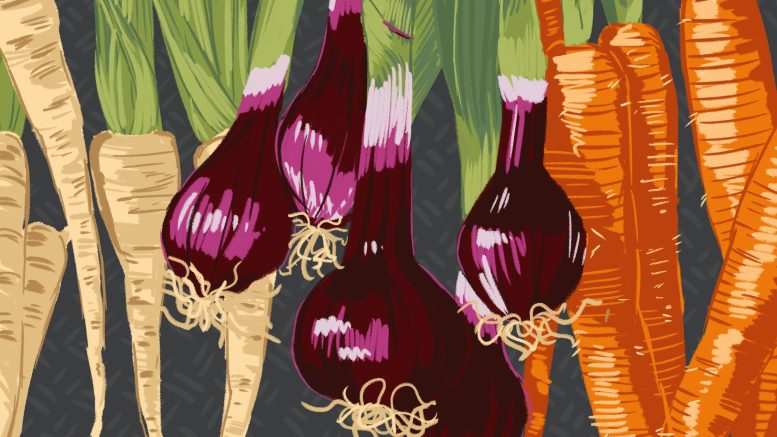For many Manitobans, November can be a sad month. Temperatures start to drop, the days get shorter and it’s usually when we get the first snowfall. For me, it is a bitter reminder of the growing season’s conclusion.
I started gardening not too long after the start of the pandemic and I quickly became infatuated with growing my own produce. As seasonal gardeners transition back to eating less locally grown food, it made me reflect on the inequalities that accompany gardening.
As a hobby, gardening is something a lot of people could benefit from, but it has its struggles.
With the drought this summer, gardeners found themselves watering almost twice a day, contributing to an expensive harvest of veggies at the end of the harvesting year. Never-ending weeding, pests eating your crops and re-planting the vegetables that have failed breaks a lot of local gardeners. Even when things do grow, small mistakes like leaving your produce on the vine too long could ruin your harvest. Effort, care and attention to detail defines the gardening process.
As someone born and raised in an urban area, I’m very disconnected from the food-growing process. Gardening helped me realize the amount of work that goes into growing the perfect produce we see in grocery stores. It gave me some insight into the effort it takes to feed a family. Growing food is hard, and knowing this has humbled me.
That appreciation for the work that goes into our food is why everyone who has the means should try growing their own.
Gardening may take time, but it’s generally much cheaper than buying food from the store. Not only do you save money, but it’s also better for the environment. Growing your own food cuts out the shipping, pesticides and herbicides used in industrial farming. For people that can’t normally afford fresh produce — which is often expensive — it is a good way to improve food security. Not to mention that food grown fresh from the garden tastes significantly better.
Unfortunately, many people in Winnipeg are unable to garden. Access to outdoor space can be hard to come by in an urban setting. Others don’t have the money to invest in spaces. To this end, community gardens are a great way to give more people the chance to grow their own food.
The City of Winnipeg offers rental plots through its rental community gardening initiatives. But many local community groups in Winnipeg, like theRainbow Community Garden (RCG), run free community gardens that make it more accessible to those with lower incomes. The RCG offers garden plots for over300 immigrant families and helps provide a sense of home in their new spaces.
Many immigrant families have trouble finding familiar ingredients when moving to a new country. The RCG provides these families a site for community while growing some of the foods from their home countries. For example, manyNepalese families grow special mustard seeds that have a distinct flavour compared to the seeds available in North America. These seeds are used to emulate recipes from their home which can be a source of comfort in their new home.
However, even when space is available for community gardens, they often do not have the watering infrastructure available to make it accessible for someone using public transport. In a summer with little rain, it would be difficult to carry enough water to cultivate a good crop.
New initiatives such as Aurora Farm’s matchmaking program look like a promising solution. The program connects people looking for a garden with homeowners who have extra yard space to share. But unless greater support is given, it is unlikely everyone will be able to garden.
Gardening is a viable way to manage issues like food security, expense and awareness. With the right investments, it could even undercut the worst climate effects of industrial monoculture cropping. But gardening is also laden with issues of accessibility. Although gardening could be a valuable method to improve standards of living, access to land and resources often inhibits the very communities gardening would serve to benefit the most.
Local community-based gardening is something that benefits everybody, but without proper investments from the city, these benefits will continue to be distributed unevenly.
To cultivate community growth, Winnipeg must adopt new initiatives to improve access to land and water.

